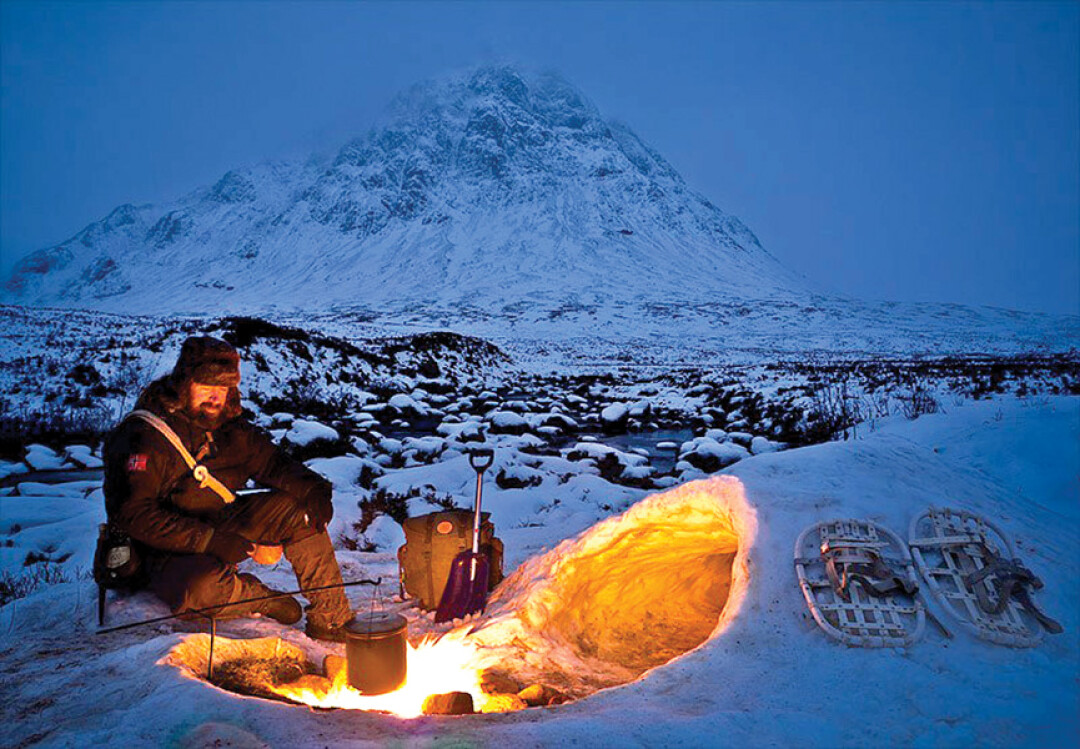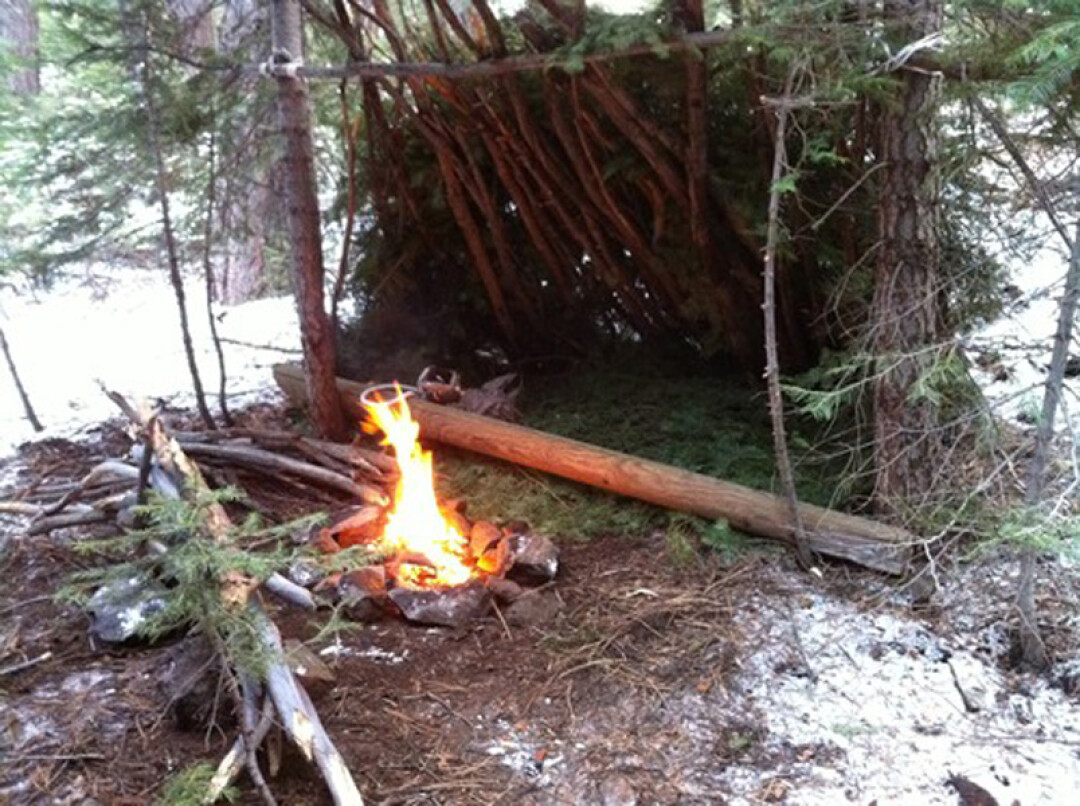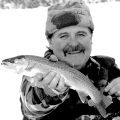The Warbag!
Montana Grant | Monday Dec. 31st, 2018

Plains Indians used to carry a small pouch of “possibles” that would help them survive their enemies and challenges. This pouch was known as a “Warbag” and contained various war-medicine articles and survival aids. Today’s Montanans need to do the same.
Every outdoors person needs to carry a Warbag, just in case it is needed. Each sport will have a certain selection of Good Medicine to help participants stay safe and strong. More modern folks have a Go Bag, Bug Out Bag, or Survival Bag ready with whatever they may need in an emergency.
Warbags should carry some basic items. A small First Aid Kit, matches, a compass, sharp edge survival tool, and personal items for your needs. Many sportsmen already carry a pocket knife, lighter, cell phone and charger, and other common and useful gear. Keep the Warbag small and manageable. A small attaché case is all you should need. Anything larger will just slow you down and add risk to your survival.
Forest fires have become a real issue due to climate change. Fires can spread quickly and devastate our environment and all you own. Having a Go Bag ready to go is a great survival tip. Keep important papers, passports, cash, meds, photos of every room in your home and property, and other essential material. If you must leave immediately, at least you will have credit documents, cash, birth certificates, valuables, insurance records, and memories you truly want. Having family pictures scanned onto a USB Drive or CD will protect your digital memories forever. You can reproduce them whenever.
Hunters and Fishermen often carry their Warbags afield and afloat. Anticipate the worst-case scenario and plan accordingly. Hunters should consider being able to spend a night in the wilderness. An injury, weather, or crisis may require you to camp out. Fire, water, food, and shelter are essential. Compact emergency sleeping bags, Space Blankets, and other comfort items can weigh just a few ounces and take up little space. An emergency drinking filtered straw can be a lifesaver. The blanket can become a quick shelter, a compass can help you find your way, and fire tools will offer heat. Practice spending a night in the wilderness with just your Warbag.
Fishermen are at risk for getting wet. Hypothermia can kill quickly. Most hypothermia deaths happen at temperatures over 75 degrees. Cold water can also kill by putting the victim into shock. Ice anglers need to consider flotation outfits, safety ice picks to pull themselves out, and a dry Warbag containing items that will help to start a fire and dry off quickly. I also carry a safety throw rope on my ice sled. Drift boats and all water craft should carry a Warbag in a flotation dry box. If the worst happens, you have what is needed to survive. No one needs to die when we are outdoors. 
Several years ago, a hunting friend of mind got stuck in the mountains. He and his partner were elk hunting in knee deep snow at 8000 feet. It was already cold and harsh. When they got a couple miles in, a snowstorm hit. Visibility was nil, snow was heavy, and they had 3 miles to get to the truck. Both were experienced woodsmen and one carried a compass. A quick bearing helped them return to the snowed in truck. They were both sweaty, cold, exhausted, and miserable. The truck was stuck, so a night in the woods was upon them. Fortunately, they had a Warbag stored under the back seat. Using a shovel from the back of the truck, they cleared an area next to the truck out of the wind. A fire was quickly started using a flare and bunches of dry pine branches from under the pine’s boughs. Larger dead branches were broken off and larger logs for firewood were found in the tree wells. Next, they hung a tarp from the side of the truck. Once the fire was up, they changed into the extra stored overalls and clothes. They knew that they were in for a long and cold night but had what they needed to survive reasonably well. Some jerky and candy bars for dinner, melted snow and tea to drink, and bouillon cube soup for nutrition. Their space blankets over a bed of cut pine branches kept the chill off.
The next day they were able to shovel out the truck, make it to a peak where they got a cell phone signal, and were able to tell their story. This adventure became a great story instead of tragedy. Without some pre-planning, both hunters could have died.
Auto travelers should always have a Warbag in their vehicles. Keep it secured and organized in your trunk or under a seat. If you become stuck in a blizzard, you have what is needed to stay safe. Contents of the Warbag can change with the seasons. A towel, overalls, gloves, cordage, socks, duct tape, snacks, handwarmers, knife or axe, blanket, flares, plastic bags, and aspirin are some suggestions. 
Duct tape can serve many purposes. It is a good fire starter, band aid, tarp fastener, and sealer between boots, pants, sleeves, and tears. You can make hats, snow glasses, bowls, gloves, and just about anything with a roll of this durable material. It is also a great first aid wrap for people and pets. If you have a huge cut or broken limb, tape and a blanket/towel could quickly seal the deal. Buy the good stuff, not the cheapo knock-offs. It could cost you your life.
One of my elk hunting buddies cut his left arm from the armpit to the wrist with a point of his sharp gutting blade. He was 10-plus miles in on horseback and was in a hurry to gut an elk when whoops! The cut would require stitches, but the blade was so sharp that it had not started to bleed. His partners duct taped the arm and shoulder wound, then wrapped the coat sleeve tightly secured with tape. This rustic bandage and butterfly kept the bleeding to a minimum. The injured hunter chewed on willow branches as he made his way out. The willow branch bark contains acetaminophen, which is a natural pain reliever. He was able to ride a horse back to camp where a truck hauled him off to the hospital to get a zillion stitches.
Bring out the inner MacGyver or Boy Scout in you. Do your survival homework before it is needed. It seems like when we prepare for the worst, it never happens but… There are a ton of YouTube videos, Google searches, books, and courses that you can take to be more informed. Much of this training is common sense but could really save your life. Many of these skills can be practiced in the back yard. Make sure that your adventure partners could save the day.
Skiers, hikers, travelers, and sportsmen need to know their limits and skills. With a little preparation, knowledge, and skill, you can turn a disaster into a manageable adventure.
Be Prepared!
| Tweet |
